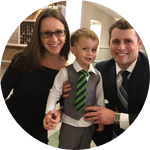About This Project
This study will conduct surveillance of digital data sources to identify and characterize illicit marketing, distribution and sale of prescription stimulants directly to the public via Twitter. We will use cloud-based computing and advanced machine learning to conduct statistical, network and geospatial analysis to explore this growing public health threat. Importantly, results of this study can have a direct impact and will be shared with regulators to better protect consumers.
Ask the Scientists
Join The DiscussionWhat is the context of this research?
Prescription stimulants, such as amphetamines and methylphenidates, are a growing public health threat given their potential adverse effect on brain functioning, and pervasive use among youth and adolescents as “academic performance enhancers." Though Federal and state agencies have attempted to tackle these challenges by using various policies to regulate access, few if any of these approaches specifically address the unique risks posed by the Internet that can enable prescription stimulant initiation, continuation, and unregulated access. This regulatory gap has given rise to illicit, "no prescription" online pharmacies that now aggressively sell stimulants directly to the consumer, even though they may be addictive, unsafe, and fake.
What is the significance of this project?
Stimulants are a particularly high risk issue for youth and adolescents as they are extremely popular among students and young adults. This age demographic is also extremely active on the Internet and social media platforms, where these drugs are marketed for sale. Hence, this study will use an innovative surveillance methodology to identify social-media content marketing the illicit use, distribution, and sale of prescription stimulants online. This includes identification of false or misleading advertising that represents consumer fraud. Results will lead to strategies to promote health education and counter-marketing. Detection of illegal websites will be shared with the US FDA and other agencies in order to shut down and prevent illegal sale of these substances online.
What are the goals of the project?
The goals of the study are to first: (1) conduct surveillance of Twitter in order to describe the nature and magnitude of illicit online marketing, sale and distribution of prescription stimulants; then (2) identify and characterize the types of marketing strategies used by synthetic cannabinoid vendors via social media, including marketing messages used to influence knowledge, attitudes and perceptions pertaining to stimulants, identification of false advertising, and characterization of online stimulant vendors; and finally (3) use statistical, network and geospatial methods, describe, test, and visualize relationships between Twitter prescription drug stimulant promotion and online access. This will give us a complete picture of how stimulant abuse is encouraged online.
Budget
The cloud computing services from AWS will allow us to collect the data we need from the twitter public streaming API with high reliability and ensure that the data collection is robust enough to capture illegal marketing by illicit online pharmacies selling stimulants without a prescription. The open access fees will allow us to publish the results of the study in a peer-review journal and ensure that the broader public has access to the study findings. We will also develop infographics and write opinion editorials for placement in the broader news media so that people will actually read our research results! The partial cost of the research laptop will provide our research team with support for equipments costs to run the study, including replacing a laptop that is on its last breath of existence.
Endorsed by
Meet the Team
Affiliates
Affiliates
Team Bio
We are a multidisciplinary team of UCSD researchers with expertise in public health, computer science, and geospatial and policy analysis. Most of us met at UCSD Daycare where our kids are classmates so we have a shared passion to keep our kids safe in the future from substance abuse behavior, including via the Internet and social media. We are an eclectic group of young investigators and PhD students looking to make a difference in the growing and complex digital sphere.
Tim Mackey
My name is Tim Mackey, and I have a passion for conducting research to keep consumers safer from the dangers of an online environment that can adversely impact health.
From an academic perspective I have a lot of hats. I am the Director of the Global Health Policy Institute, an Assistant Professor of Anesthesiology and Global Public Health at UC San Diego School of Medicine, and the Associate Director for the UC San Diego MAS Program in Health Policy & Law. I also hold a BA in Political Science-International Relations and a Masters Degree in Health Policy & Law from UC San Diego and finally earned my PhD in Global Public Health from the joint doctoral program at UC San Diego - San Diego State University.
My work has been featured in high-impact journals such as Science, JAMA, Nature Biotechnology, the Lancet, Nature Reviews Clinical Oncology, Clinical Microbiology Reviews, and BMC Medicine (I love to publish in different journals!) Importantly our research has also had an impact on people outside academia, including news reports, interviews, and other media featured in major news outlets such as CNN, NPR, and POLITICO Pro to name a few.
My work focuses on a broad array of multidisciplinary topics in domestic and global public health. This includes cross-cutting research in disciplines of public health, medicine, international relations, public policy, law, innovation, substance abuse, eHealth, crime, and global governance. I also have enjoyed a robust history of professional experience including consulting for the World Health Organization, the US Department of State and holding a "real job" in the private sector for over a decade before going back to graduate school.
Takeo Katsuki
Takeo Katsuki is an Assistant Project Scientist at University of California, San Diego in the Kavli Institute for Brain and Mind. He holds a BA and MS in biophysics and biochemistry from the University of Tokyo and a PhD in Genetics from the National Institute of Genetics, Mishima Japan. He has fluency in R programming language, big data analysis and management, and experience in high-performance computing. He is currently working on projects surveilling social media for prescription drug abuse behavior with GHPI.
Raphael E. Cuomo
Raphael E. Cuomo is a Senior Research Associate at GHPi and a PhD Candidate in the Joint Doctoral Global Public Health Program at the UC San Diego and San Diego State University. He obtained a BS in Biology at Lafayette College and completed a medical education summer program at Yale University and a medical externship at the Cardiac Arrhythmia Center in the Washington Hospital Center. He also holds an MPH, with a concentration in Health Management and Policy, from SDSU. Raphael has also completed graduate coursework to obtain a Professional Certificate in Sustainability from Harvard University and he holds a certification in Public Health by the National Board of Public Health Examiners. Raphael has conducted public health research with several organizations, including the Institute for Behavioral and Community Health, Leidos, and the Worldwide Orphans Foundation.
Janani Kalyanam
Janani Kalyanam is a Senior Research Associate at GHPi and a PhD Candidate at the Department of Electrical and Computer Engineering (ECE) at the University of California, San Diego. She holds a BS from Rutgers University and a Masters from the University of Wisconsin, Madison, all in ECE. Her research focuses on developing machine learning and data science based tools to solve big data and related problems with applications specific to global public health. While her educational background is primarily in Computer Science and Engineering, she is passionate about work that is interdisciplinary in nature, and believes that it requires minds from a variety of disciplines to solve important problems in society.
Additional Information
Our team has done a lot of work examining the public health dangers of illicit online pharmacies, including authoring several peer reviewed publications and gaining coverage from media outlets. Here are some links and videos on our research!
Recent research publications:
Original Research in Journal of Medical Internet Research
Original Research in Addictive Behaviors
Review article in British Medical Bulletin
Media coverage and videos:
>Research featured in ABC World News Live TV broadcast
>Research presentation at Partnership for Safe Medicines Interchange
>Article in CNN on how to order drugs safely on the Internet
>Article in AARP educating seniors on online drug safety
Project Backers
- 0Backers
- 0%Funded
- $0Total Donations
- $0Average Donation





